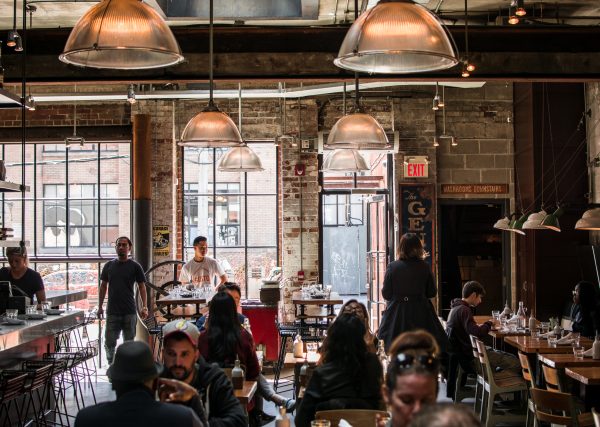10 Most Common Mistakes of First-time Restaurateurs
10 Most Common Mistakes of First-Time Restaurateurs
Opening a restaurant comes with complex challenges and difficult decisions. If you’re a first-time restaurateur, you can expect to make hundreds of decisions before you even open for business. With so many decisions to make, you won’t always be right. The key is to make good decisions on important issues to avoid making the most common mistakes that can cripple a restaurant.
THE 10 MOST COMMON MISTAKES TO LOOK OUT FOR:
1 If you build it, they will NOT come
The foodservice industry is no Field of Dreams. It’s a complex and nuanced business that can frustrate even the most seasoned entrepreneur. Just because you hung your shingle, people aren’t going to flock to you. Leave nothing to chance. Use your launch to build a raving fan base so when the doors finally do open customers will be lining up to get in.
2 You didn’t do your menu math homework
Have you ever been out to dinner and wondered how much your meal cost the restaurant to make? I’m going to let you in on a little secret: they probably couldn’t tell you! In many restaurants, the menus are developed by cooks who focus on how dishes look and taste, not on what they cost to produce. When I opened my first restaurant, I sold a salmon dish that was an absolute hit with customers at a loss for almost six months because I never mapped out the recipe and calculated my cost. If you don’t know what your dishes cost to produce, your food costs will quickly get away from you. That can be the kiss of death for a new restaurant.
3 Not enough cooks in the kitchen
When first staffing a restaurant your inclination will be to hire only as many people as you absolutely think you need because — let’s face it — who wants to pay people to stand around, right? Wrong! Early on, you need to hire significantly more people than you think you need. Three times more people, in fact. Here’s why … a third of the people you hire up front will likely bail on you within the first two weeks. Another third you’ll realize aren’t worth keeping around in that same two weeks. Fire those people immediately. The remaining third will form your core team and stay on.
4 You have “Superhero Syndrome”
So you’re the modern day Clark Kent. You’re faster than a speeding bullet, more powerful than a locomotive, able to leap tall buildings in a single bound, but guess what … you still cannot run a restaurant by yourself. And if you try, as so many of us do initially, I guarantee at some point you’ll burn out and your restaurant will suffer. Focus on ownership issues that require your direct involvement and tasks that suit your particular skill set. Find someone trustworthy to delegate everything else to.
5 You’re an absentee owner
On the other hand, you can’t just rely on someone else to run your restaurant for you while you sit back and reap the rewards. The restaurant business doesn’t lend itself well to absentee ownership unless you’re a celebrity chef with a huge team of rock stars. Bobby Flay and Gordon Ramsay may be able to successfully open restaurants with little or no direct involvement, but even they toiled in the kitchen early in their careers. When you first open your restaurant, you must obsess about learning and understanding everything about how it operates. Over time, as your skills evolve and your understanding of the business grows, you can begin to delegate and automate. All too often, first-time restaurateurs take the learning curve for granted and don’t commit the time up front that’s necessary to succeed.
6 You don’t have systems in place
The system is the solution! If you don’t develop and document operational systems for your employees to follow and your managers to enforce, be prepared to wear a lot of hats. Systems provide direction and accountability for staff, which in turn free you up to focus on bigger-picture tasks. The goal of every restaurateur is to work in their business, not on their business. But until solid systems are developed and implemented, that can’t happen.

7 You lack focus
The ability to Follow One Course Until Success (FOCUS) is a critical skill first-time restaurateurs need to develop to be successful. The restaurant business is ever evolving and has so many moving parts that falling victim to distraction is easy. You must approach every task decisively and with an end goal in mind or risk burrowing down endless rabbit holes. I was a victim of Shiny Object Syndrome (SOS) when I opened my first restaurant — constantly distracted by trends, things that at the time had little or no bearing on the actual operational needs of my business. It’s hard to do but you have to FOCUS.
8 A not-so-grand opening
You know the saying, you only get one chance to make a first impression? Well, in the restauran business, where competition is intense and the customer is increasingly fickle, that saying couldn’t be truer. You may think you’re ready for everything, but believe me, until you have your first service you really don’t know anything. Do yourself a favour and have a soft opening for friends and family first to stress test your kitchen and staff. As a first-time restaurateur it’s extremely difficult to come back from early bad reviews. I opened my first restaurant to friends and family a week before I opened to the public and boy was I happy I did. Our first service was chaotic and highlighted a dozen or so things we needed to address before officially opening.
9 You’re trying to be everything to everyone
In most circumstances the old adage “the customer is always right” still applies, but sometimes in foodservice you need to just say NO. If a customer wants his steak cooked to death or his greens plated separately you should do it. But when requests become unreasonable and put undue stress on your staff and impact the experience of other customers, there’s nothing wrong with politely declining to accommodate them. If you try to be everything to everyone you’ll soon find yourself catering to the ridiculous whims of people who have no regard for you or your business.
10 You’re focusing too much on what YOU like
Restaurants exist to provide pleasurable dining experiences for customers, not stroke the egos of their owners. You may like loud music and spicy food, but if those things aren’t aligned with your concept and overall brand they have no place in your restaurant. Remember, it’s a consistent, pleasurable experience that keeps your customers coming back. The expression “failing to plan is planning to fail” is more applicable to the restaurant industry than any other. Try to avoid these mistakes and you’ll be one step closer on your journey to restaurant riches.
Editor’s Note: Gabe Da Silva wrote this article in 2014. It resonates as much (if not more) today. There are many challenges facing Canadian restaurateurs. At MENU, we make it our job to speak to you and to know your stories inside and out; to find and provide takeaways that you can apply to your business today. This is one of them.
Also read: Top ways to make money now








1 Comments